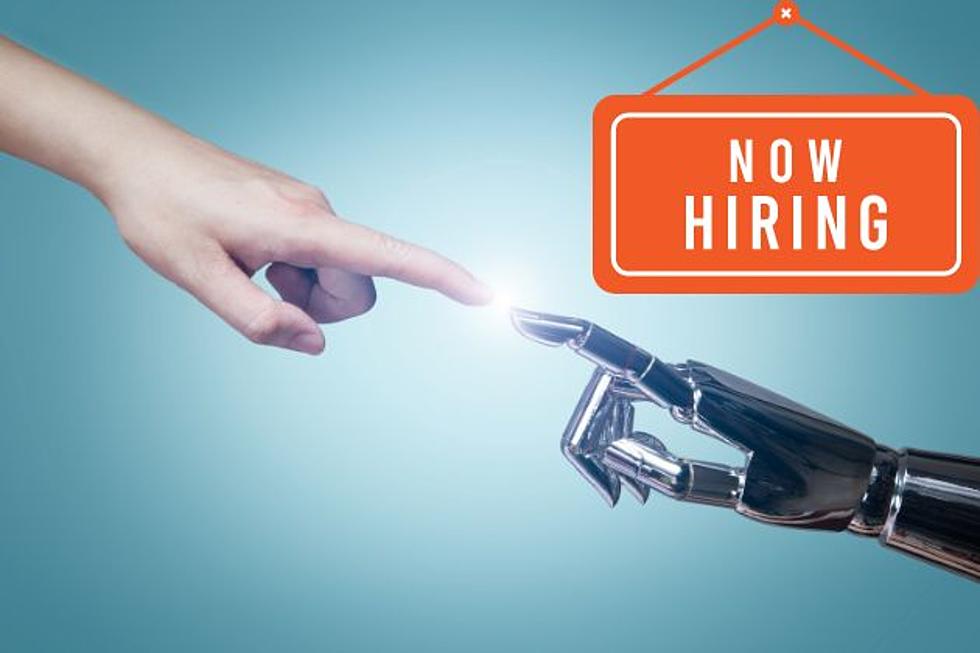
What people in NJ and nation worry about AI and their jobs
🔴Most people are concerned about the role of artificial intelligence and their jobs
🔴A national survey conducted by Rutgers assessed worker concerns about AI
🔴Government regulation of AI is supported by the three major political parties
Are you worried about how artificial intelligence may affect your job one day? You’re not alone.
While this is in the distant future, it’s already on the radar of so many American workers.
A national survey conducted by The Heldrich Center for Workforce Development at Rutgers University assessed the impacts of artificial intelligence on jobs.
The survey found widespread uncertainty about the potential impacts of AI on jobs and the labor market, said the center’s director and Distinguished Rutgers Professor of Public Policy, Carl Van Horn.
President Joe Biden’s executive order signed in late 2023 directs federal agencies to develop guidelines for the responsible use of AI by private companies, academia, and governmental agencies. It also contains a “commitment to supporting U.S. workers,” including assessing job displacement risks due to the application of AI in the workplace.
Interesting findings came out of the survey
More than 80% of U.S. workers are concerned that artificial intelligence will ultimately replace their jobs and within that, they are mainly concerned about whether it might influence hiring decisions and evaluations of their work, Van Horn said.
Another interesting finding is that Democrats, Republicans and independents are all interested in having the government provide some regulation of artificial intelligence in the workplace because of the concern of potential job loss.
“There aren’t many things that Republicans, Democrats, and independents agree about, but in this case, they do agree,” Van Horn said.
At least 40% say the government’s role when it comes to AI and jobs is very important.
Most U.S. workers said they were not concerned that AI would cause their own jobs to be eliminated but worried more about the impact of AI on employers’ hiring and promotion decision-making.
“I think what they’re expressing there is the concern that somehow this new system will sort out the people to be hired versus those who aren’t hired without really giving people the opportunity to appear in front of an interviewer and explain why he or she is the right person for the job,” Van Horn said.
Another concern is that when it comes to evaluating workers, people are concerned that they may not get a promotion or an opportunity to advance because artificial intelligence analytics is deciding whether they’re worthy of being promoted, Van Horn added.
While most U.S. workers say they agree AI will eliminate, rather than create jobs, they are divided when asked about who may be more likely to lose their jobs.
“Part of the question about artificial intelligence is that we’re not exactly sure. We’re peering into the future which is really unknown and so it’s not clear whose job will be eliminated and other jobs being created,” Van Horn said.
Overall, people who have college degrees or more believe they are less likely to be influenced by artificial intelligence than those people who don’t have those degrees.
Workers living in lower-income households are twice as likely to say they are very concerned about AI and economic issues compared with workers in higher-income households.
Also, 78% of females expressed concern about AI and jobs compared to 64% of men.
One in 10 people said they have not heard, read, or know a lot about how AI will affect jobs and workers.
It’s not clear how things are going to turn out, but this is what concerning workers these days, he said.
“As with other major technological changes, generative AI will create opportunities for some and heartbreak for others. Workers, especially those with the least formal education, want safeguards that protect them from disruption and unemployment,” Van Horn said.
Report a correction 👈 | 👉 Contact our newsroom
LOOK: Most common domestic destinations from Trenton Mercer Airport
Gallery Credit: Stacker
More From New Jersey 101.5 FM









